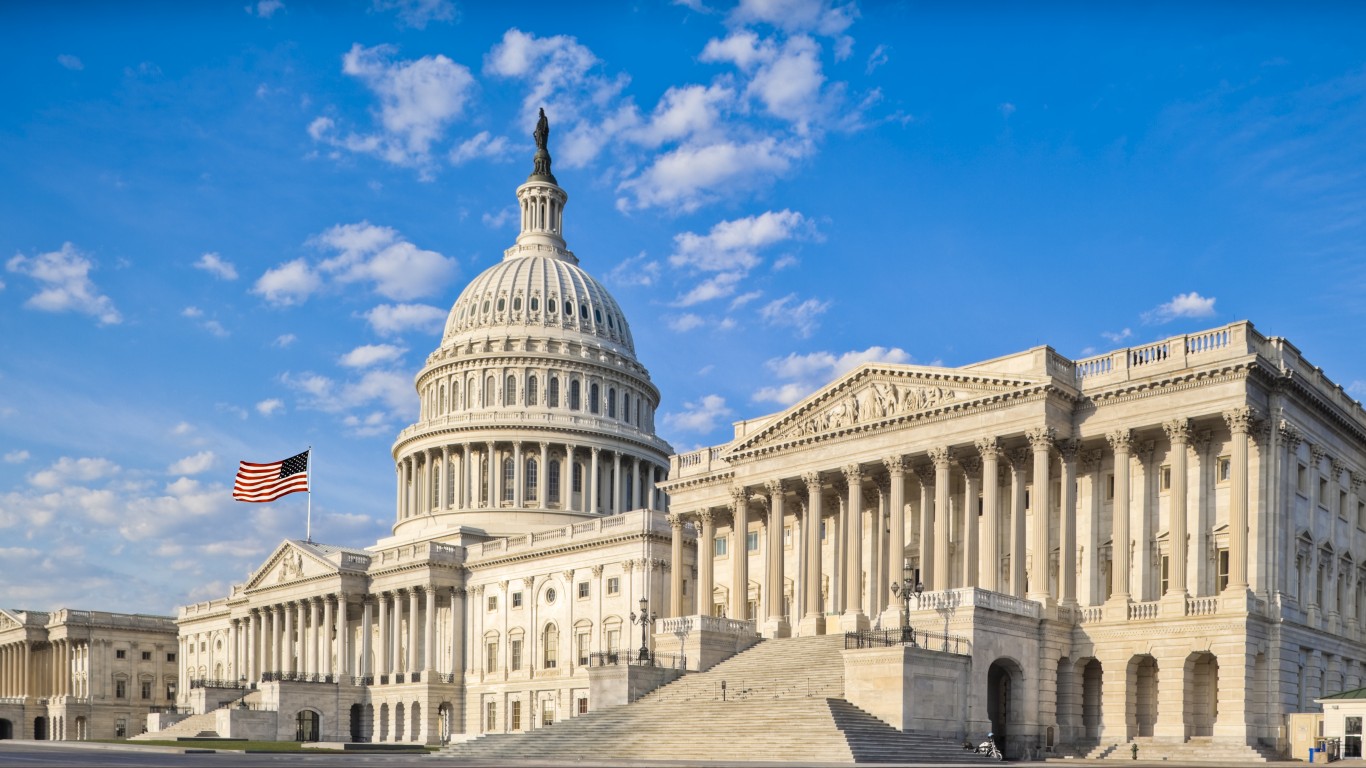
The historically unproductive 118th Congress is beset by partisan bickering and gridlock. Since the Republicans gained the House in the 2022 midterms, few meaningful bills have made it through Congress. Yet there are still elected officials willing to reach across the aisle. The Lugar Center and McCourt School of Public Policy releases the bipartisan index each year to track cross-party cooperation. This article examines the Senate Democrats with the strongest bipartisan records.
Why This Matters
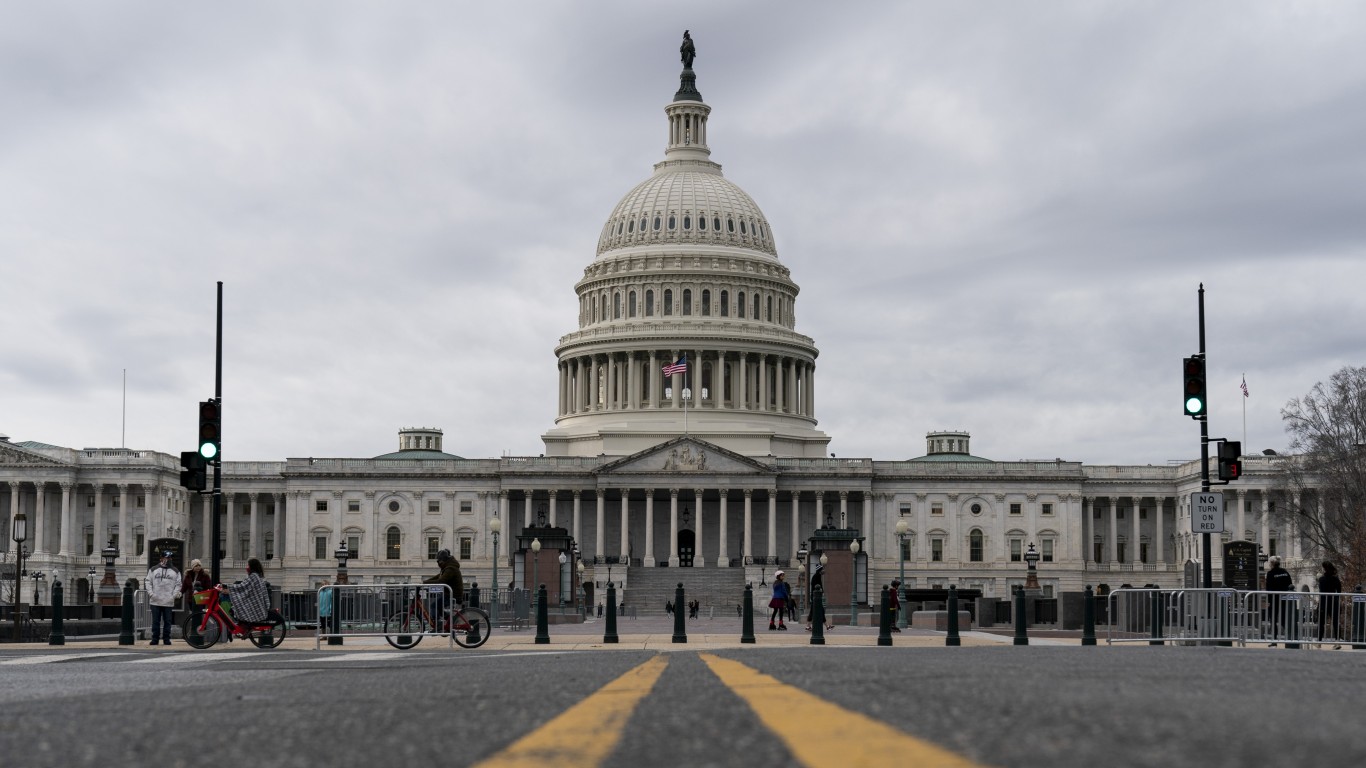
In an election year, American voters will determine not just the presidency, but who controls Congress. One party may well win the government trifecta but it is more likely that one party will control the House, the other the Senate. If any meaningful legislation is to be passed by the 119th Congress, cooperation and bipartisanship will be needed so it is important to know who the potential deal makers and deal breakers are.
A Note on Party Leadership
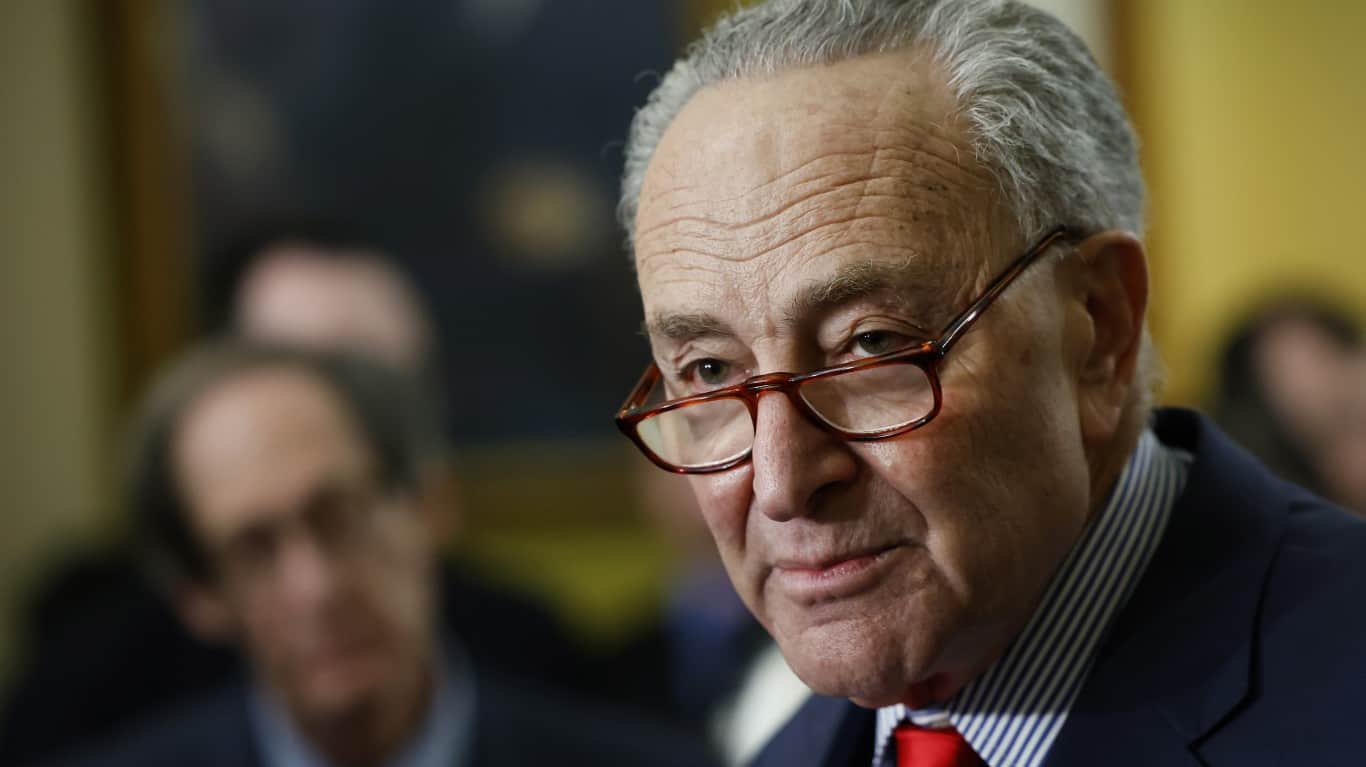
The bipartisan index does not track either the majority or minority leader in the Senate so Mitch McConnell and Chuck Schumer are not included in the rankings because party leadership operates quite differently from regular members. It also does not include Senators with less than six months of service so Ben Sasse, who resigned in January 2023, is not included nor is Laphonza Bulter, the late Dianne Feinstein’s appointed replacement. Independents who caucus with the Democrats are included here.
10 – Angus King (Maine)
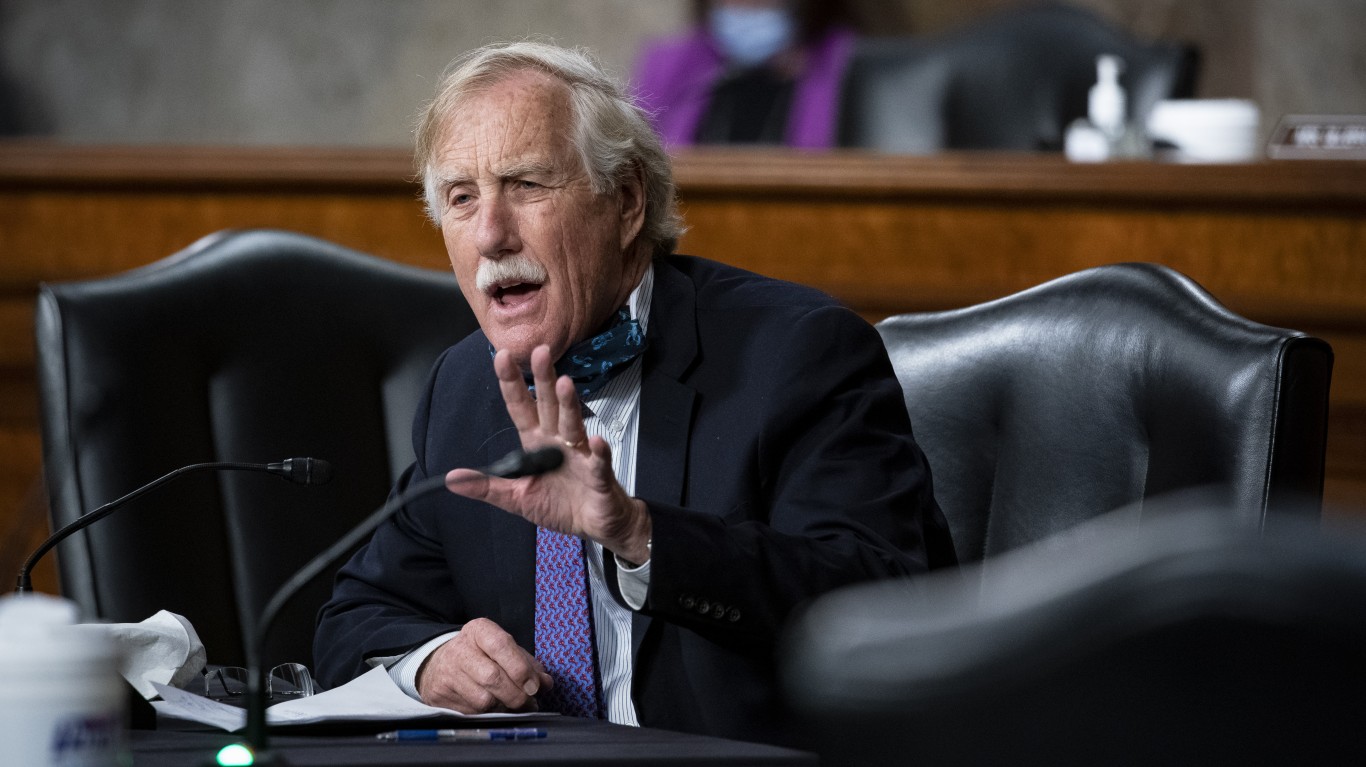
Assumed office: 2013
Bipartisan ranking: 17
Maine’s Angus King is an independent who caucuses with the Democrats. A former governor of Maine from 1995-2003, King returned to politics for a successful senate run in 2012. He won a decisive victory for the open seat over Republican and Democrat challengers. He has spoken of the need to find common ground and bipartisan solutions to the problems facing America. King positions himself as a moderate centrist and said ahead of his decision to run again in 2024:
I’m running because I think I have a role to play, to bridge the divide, to listen to people, to bring people together and to compromise to solve these difficult issues
Now 80, King will seek a third six-year term in November which he is projected to win comfortably.
9 – Chris Coons (Delaware)
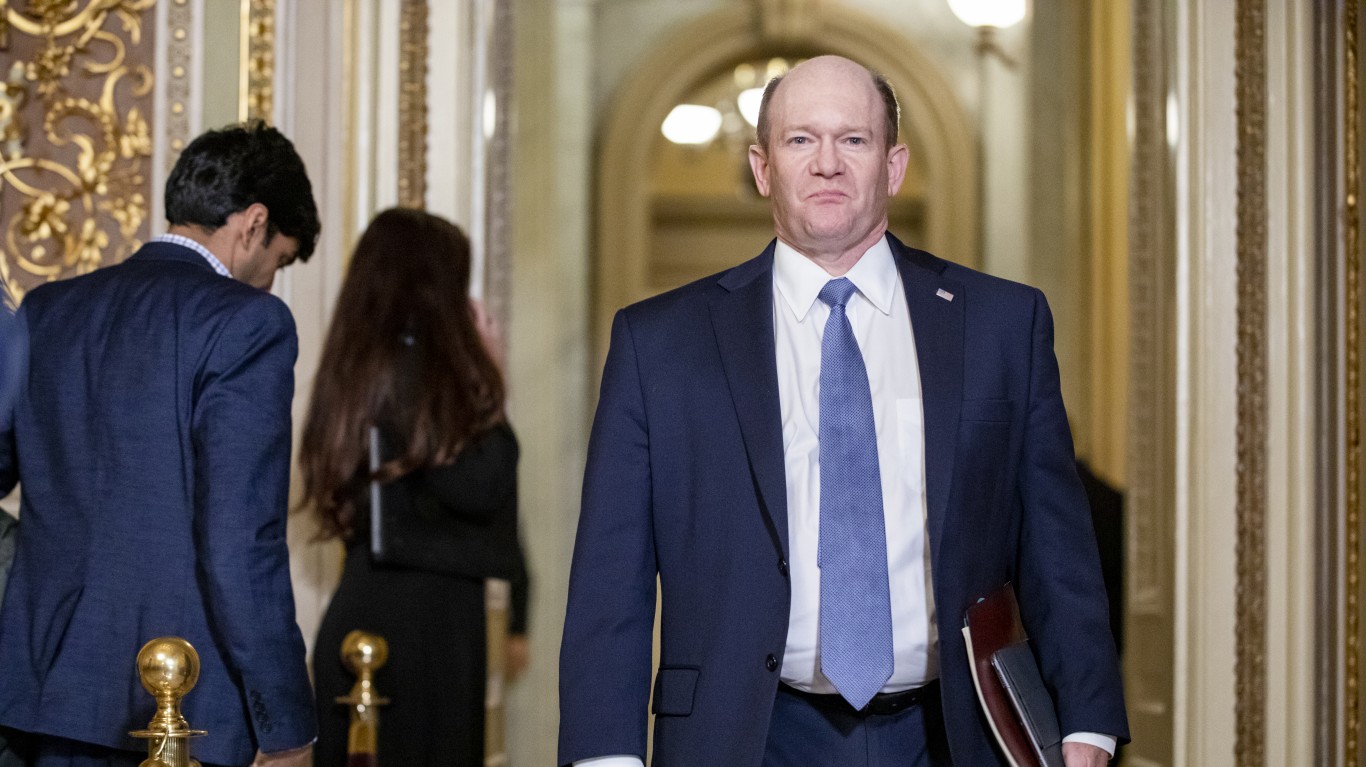
Assumed office: 2010
Bipartisan ranking: 16
Chris Coons is one of President Joe Biden’s closest political allies, an association that stems back to Coons’ time as an intern for Biden 35 years ago. Coons won the special election for Biden’s old seat in 2010. Like his mentor, Coons is a moderate Democrat who values building consensus and forming good relationships across the aisle. Though at odds with conservatives over abortion and gun control, he is a strong supporter of Israel, law enforcement, and the military.
His current term runs until 2026 and with no real danger of losing his seat in an election, it will be a matter of how long he wishes to be in the Senate.
8 – Amy Klobuchar (Minnesota)
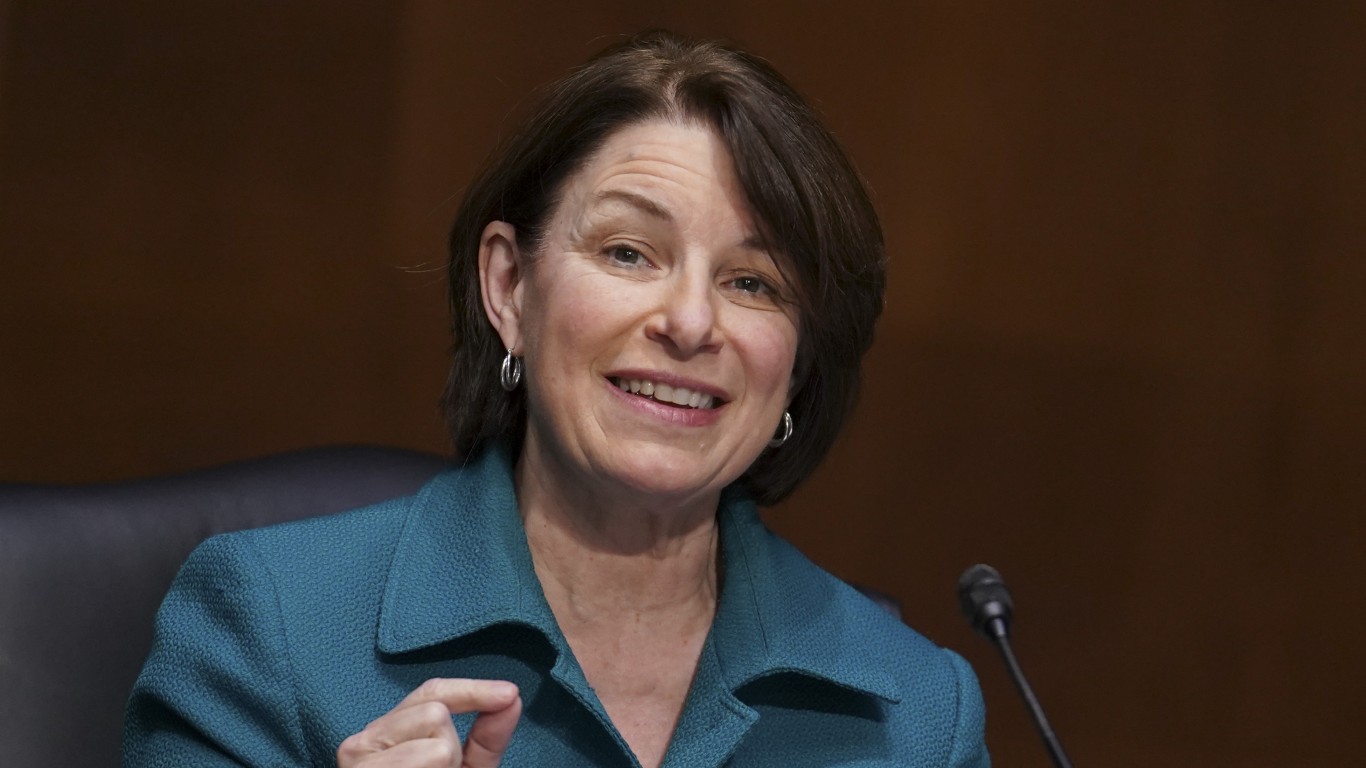
Assumed office: 2007
Bipartisan ranking: 15
Amy Klobuchar has represented Minnesota in the Senate since winning a 2006 election for the then-open seat. She comfortably won re-election twice in 2012 and 2018. She enjoys a high job approval rating gained by effective legislative work and an ability to reach across the aisle.
On her consistently high bipartisan ranking, she said:
When we put partisanship aside and people first, we get results, I’m proud of my work to get stuff done with colleagues on both sides of the aisle.
Amy Klobuchar gained national prominence during a failed bid for the presidency in 2020. She was considered a strong contender to be Joe Biden’s running mate but removed herself from contention. She faces a straightforward re-election in November.
7 – Raphael Warnock (Georgia)
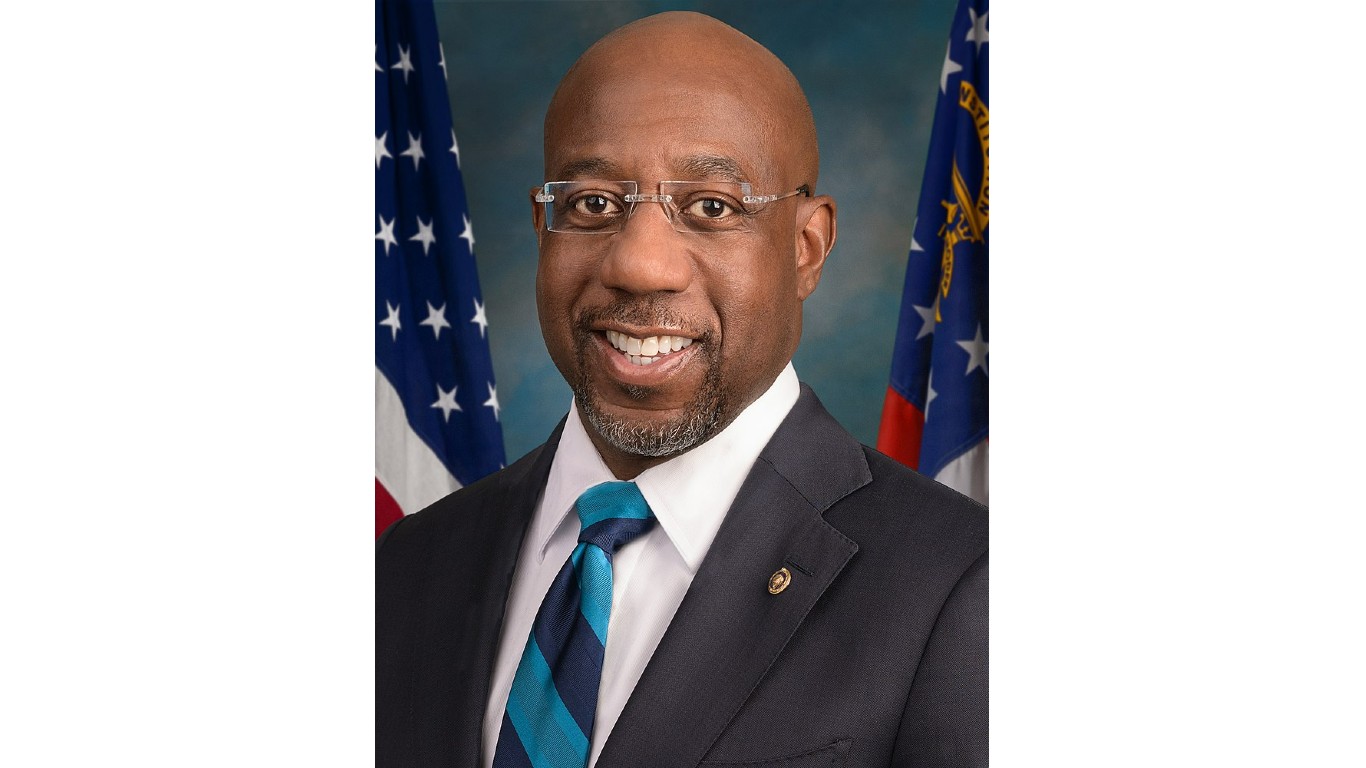
Assumed office: 2021
Bipartisan ranking: 14
Raphael Warnock won a crucial Senate race in a special election run-off in January 2021. Warnock and John Ossoff flipped two Republican seats in Georgia to hand Democrats control of the Senate in January 2021. In the Senate, he’s worked with Republicans to pass several bills that became law. On his strong bipartisan record, he said:
Georgians sent me to the Senate to get things done, so I’m pleased to receive this recognition for my tireless efforts to deliver for Georgians
Warnock won a close race for a full term against Herschel Walker in 2022. The slender margin of victory in a swing state means he’ll likely continue as a moderate voice in the Senate.
6 – Kyrsten Sinema (Arizona)
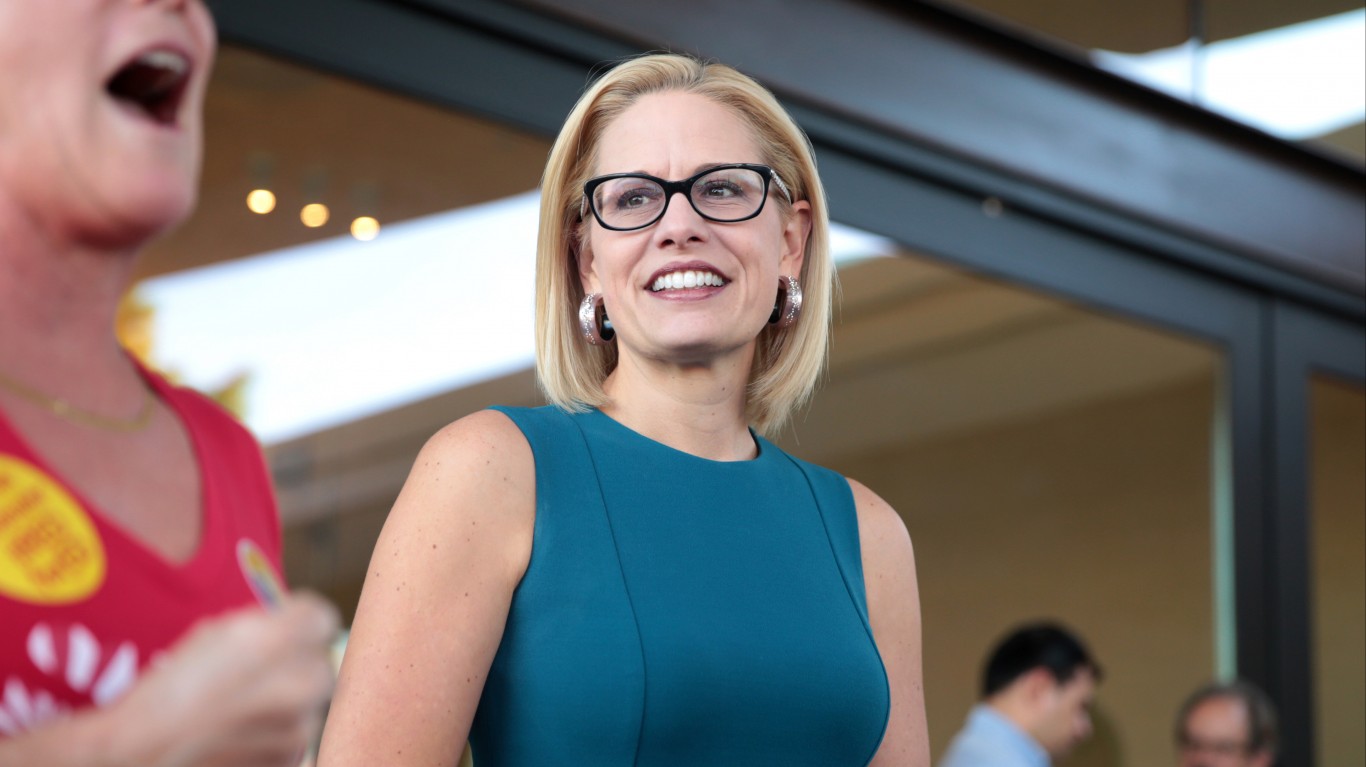
Assumed office: 2019
Bipartisan ranking: 12
A former Green party member and staunch progressive, Kyrsten Sinema’s political career took a rightward turn as she sought higher office. She was one of the most conservative Democrats in the House and continued that approach as she ran for the Senate in 2018. Sinema defeated Martha McSally in a fairly close election to become the first female senator to represent Arizona.
She exasperated other Democrats when she held up key bills and refused to budge on eliminating or reforming the filibuster. The Arizona Democrats censured her in January 2022. In December 2022, she left the party citing her wish to detach from the “broken” partisanship of the chamber:
My approach is rare in Washington, and has upset partisans in both parties.
Her independent streak came with a political cost. With no viable path to re-election in 2024, she chose not to run in November and will leave the Senate when her term expires.
5 – Jon Tester (Montana)
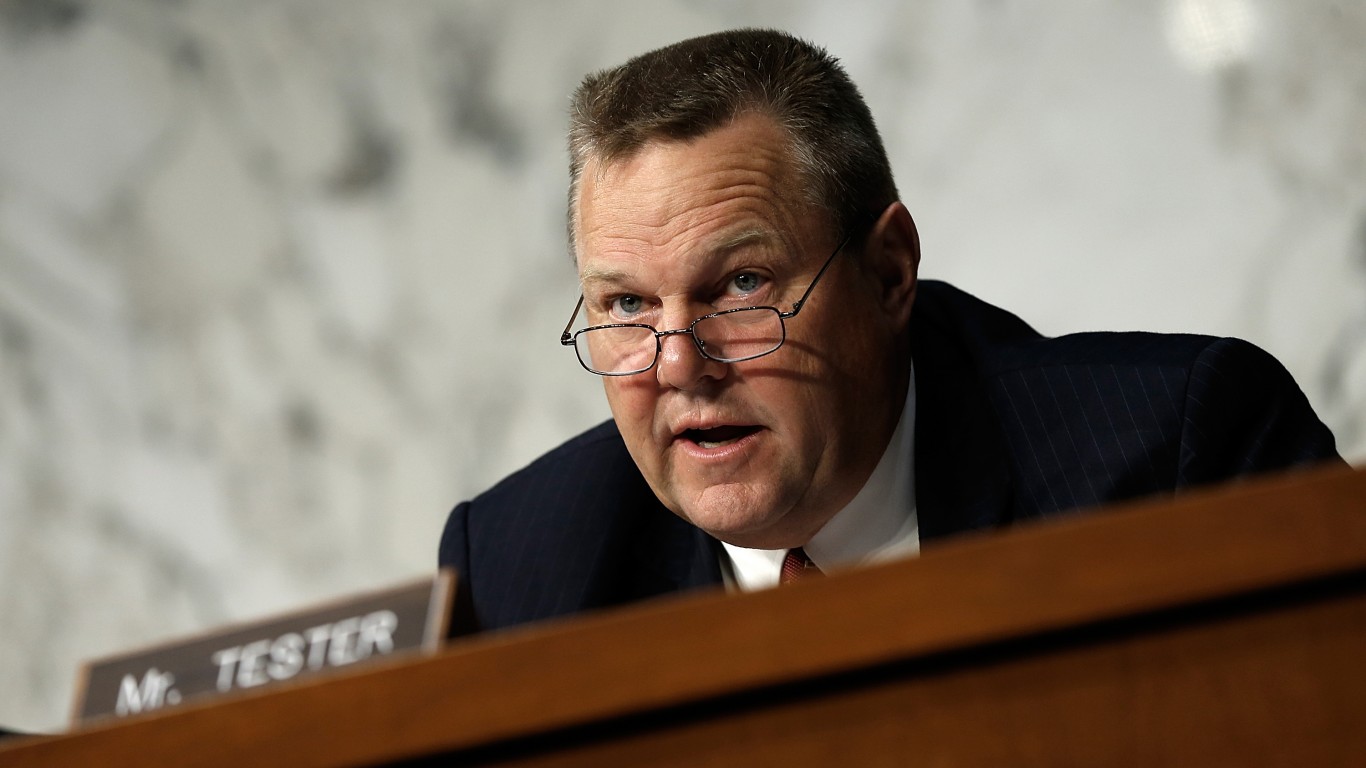
Assumed office: 2007
Bipartisan ranking: 10
Montana’s Jon Tester won a very close race for the Senate in 2006 with just under 50% of the vote. He won close races in 2012 and 2018, crossing the 50% threshold for the first in the latter. As a Democrat in a predominantly red state, he is to the right of his party on matters such as gun control and immigration. He has a record of effective legislating and touted his bipartisan ranking in a recent press release:
Montanans sent me to the Senate to deliver commonsense results and protect our way of life, not to toe a party line.
Tester faces another testing re-election campaign in November, he is trailing his Republican opponent in the polls.
4 – Jacky Rosen (Nevada)
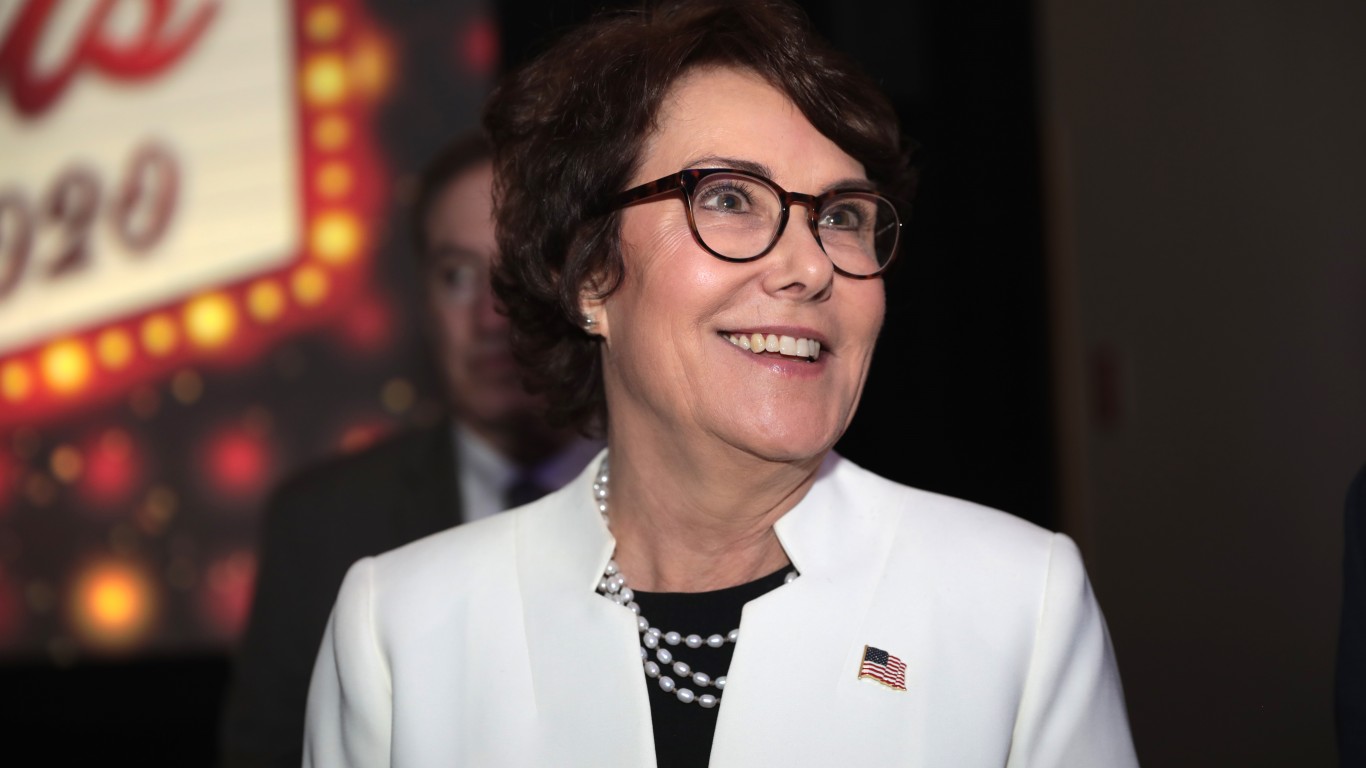
Assumed office: 2018
Bipartisan ranking: 6
Jacky Rosen unseated a Republican incumbent in the 2018 election. She was the only Democrat to flip a Republican Senate seat that year. She has positioned herself as a moderate liberal in a highly competitive state. Rosen has consistently ranked highly in the bipartisan index and has been in the top ten for the past three years. As she explained in a press release about her latest and highest ranking to date:
I’m proud to be recognized as one of the top 10 most bipartisan senators for the third year in a row for my work with Republicans, Democrats, and Independents to help lower costs, support our state’s economy, and protect our national security.
She faces a competitive race to retain her seat but holds a slight advantage in the polls.
3 – Joe Manchin (West Virginia)
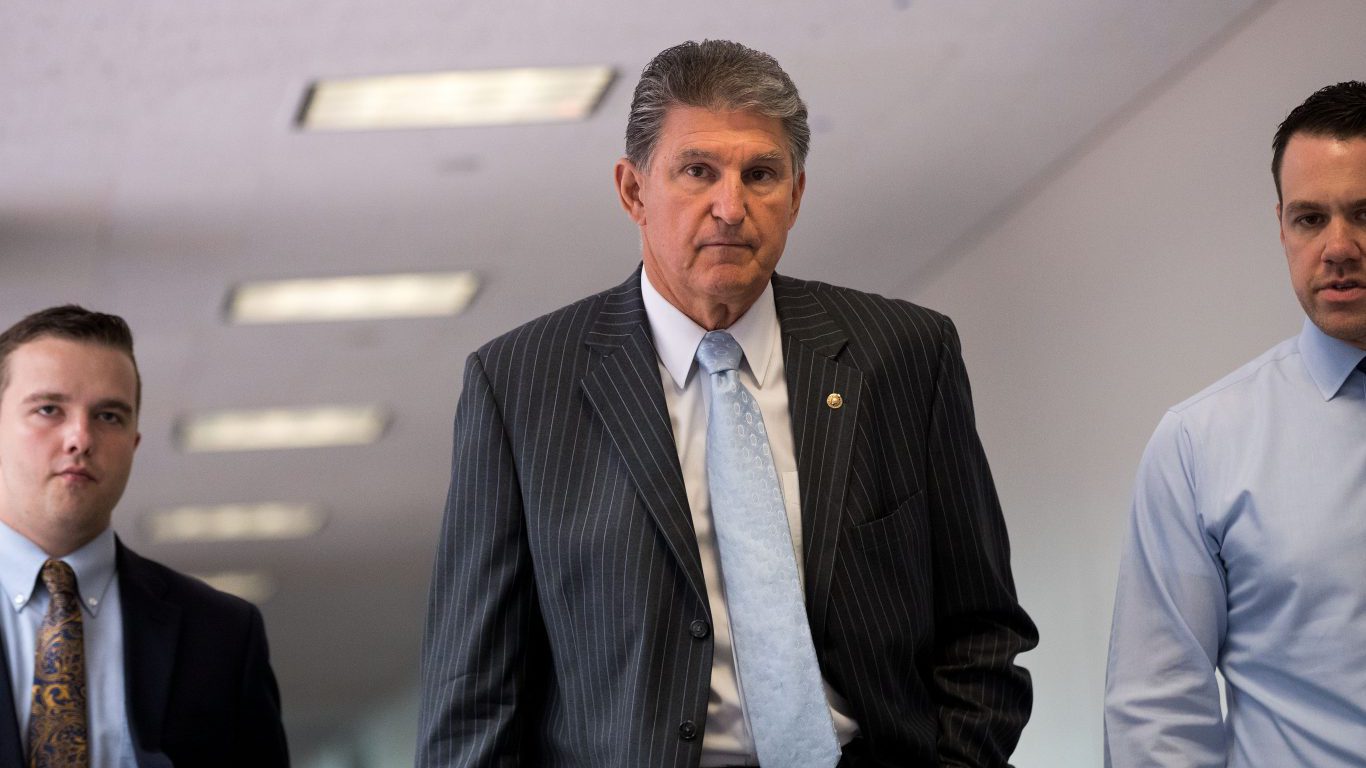
Assumed office: 2010
Bipartisan ranking: 4
Joe Manchin has been a fixture of West Virginian politics for decades. A former governor of the state from 2005-10, Manchin won the race to succeed Robert Byrd in a special election in 2010. As a Democrat in a deeply red state, Machin toed a fine line between his party and the wishes of his constituents. Until he left the party in 2024, he was easily the most conservative Democrat in Congress.
Along with Kyrsten Sinema, he infuriated other Democrats by holding up and watering down key bills put forth by the Biden administration. He became an independent in 2024 and said he would only vote to confirm judicial appointments if they had bipartisan support.
He chose not to run for re-election in 2024.
2 – Maggie Hassan (New Hampshire)
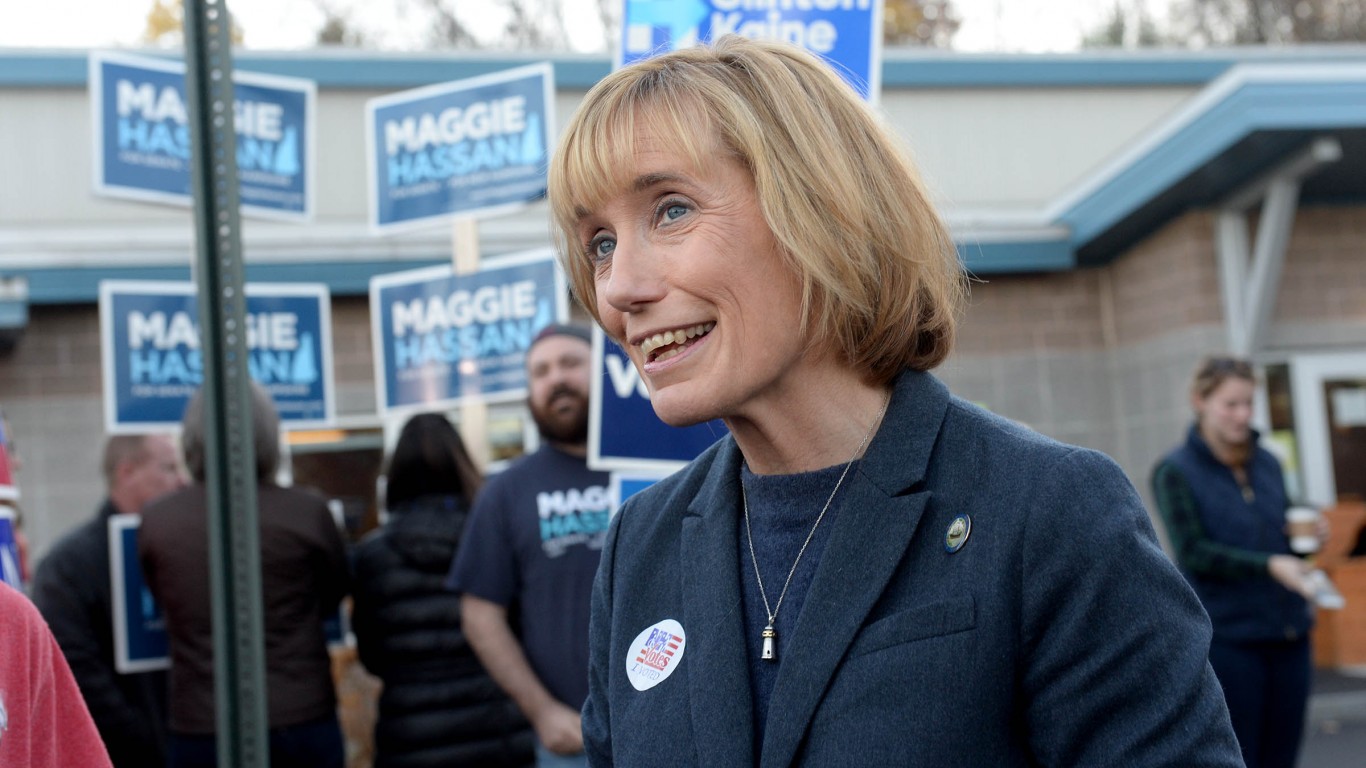
Assumed office: 2017
Bipartisan ranking: 3
A former governor of New Hampshire from 21013-17, Maggie Hassan won a close race for the Senate in 2016. She won re-election by a far more comfortable margin in 2022 against a Trump-backed far-right candidate. A moderate, Hassan ranked first for bipartisanship in the 2021 index and third in the latest rankings. She stressed the importance of finding common ground in a press release:
Bipartisanship strengthens our ability to make lasting change based on the priorities of the American people, and I am honored to earn this ranking. I will continue to work across the aisle to deliver bipartisan results for Granite Staters.
Hassan’s term runs until 2026. In a competitive state, bipartisanship will enhance her prospects should she seek re-election.
1 – Gary Peters (Michigan)
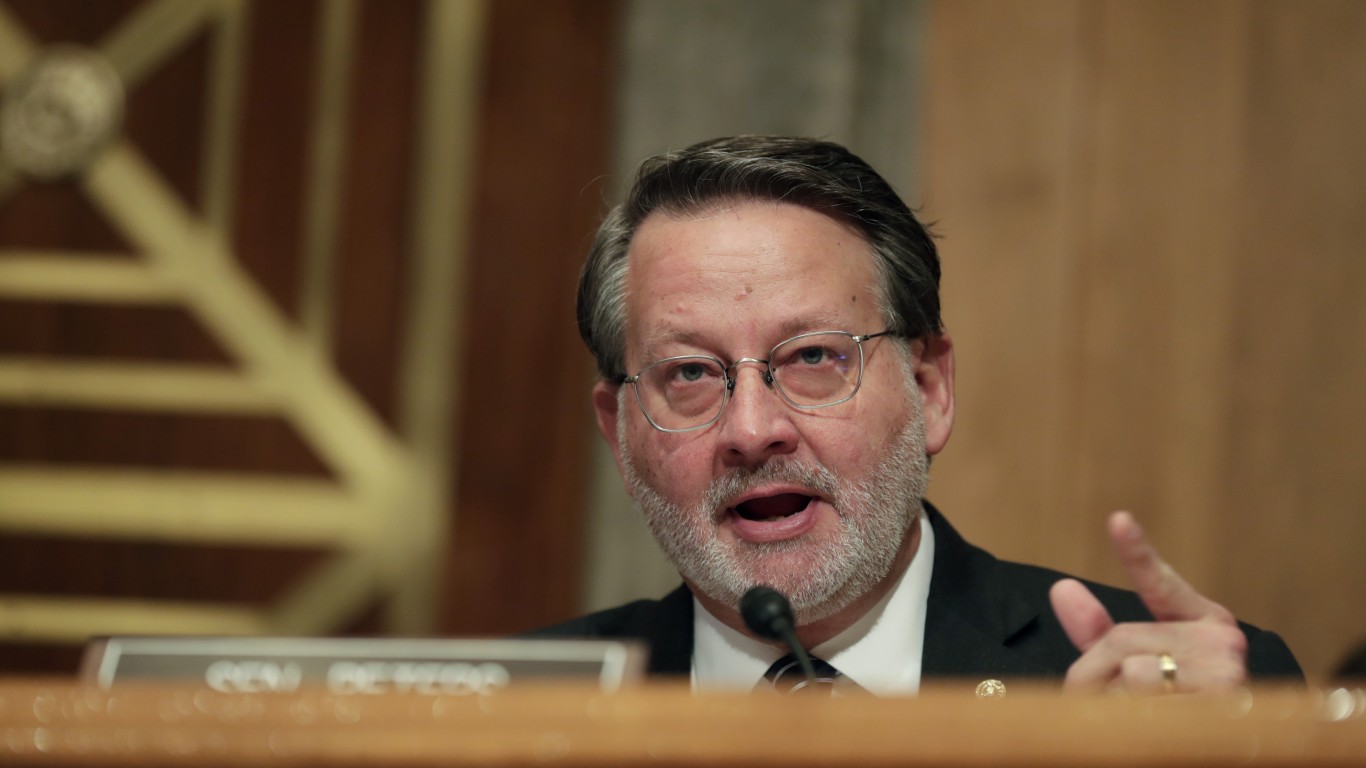
Assumed office: 2015
Bipartisan ranking: 2
Gary Peters is the most bipartisan Democrat in the Senate. Peters won a decisive victory for the Senate in 2014 and prevailed in a much closer contest in 2020. In his time in the Senate, he has consistently ranked highly for bipartisanship and effective cross-party legislation. Peters has sponsored or co-sponsored 156 bills that became law. He said of his latest and highest rank:
I’m proud to be recognized for my bipartisan record, which has always been a priority of mine in the Senate. Michiganders expect me to work with my colleagues – from both parties – to solve problems and deliver results that will benefit our state.
Peters won’t have to worry about re-election until 2026.
Conclusion

Three of the politicians profiled here caucus with the Democrats but are not party members and only one stands a chance of remaining in the Senate beyond 2024. Joe Manchin and Kyrsten Sinema often ran afoul of Democrats with their objections to key bills and felt forced out of the party. Manchin’s seat in a deeply red state did offer some political cover to oppose Joe Biden’s agenda but Kyrsten Sinema’s obstruction was less excusable in Democrat eyes.
Jacky Rosen and Jon Tester face competitive re-election races so in a worst-case scenario, the Democrats could lose their slim Senate majority and most bipartisan members in 2025. The Democrats and Democrat-aligned figures in this article represent competitive and Republican-leaning states. With the filibuster in place, legislation requires a great deal of cooperation and bipartisanship to succeed. Without its most bipartisan members, the Democrats face an uphill battle to get any meaningful legislation through Congress.
Are You Ahead, or Behind on Retirement? (sponsor)
If you’re one of the over 4 Million Americans set to retire this year, you may want to pay attention.
Finding a financial advisor who puts your interest first can be the difference between a rich retirement and barely getting by, and today it’s easier than ever. SmartAsset’s free tool matches you with up to three fiduciary financial advisors that serve your area in minutes. Each advisor has been carefully vetted, and must act in your best interests. Start your search now.
Don’t waste another minute; get started right here and help your retirement dreams become a retirement reality.
Thank you for reading! Have some feedback for us?
Contact the 24/7 Wall St. editorial team.
